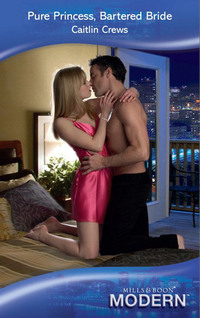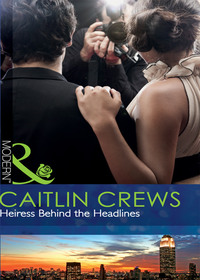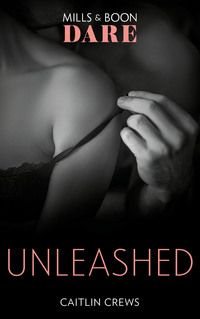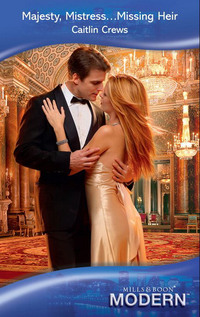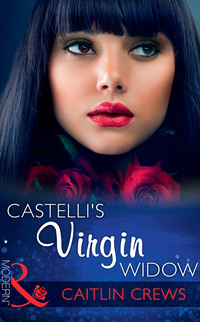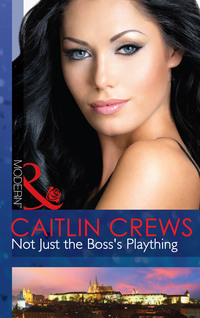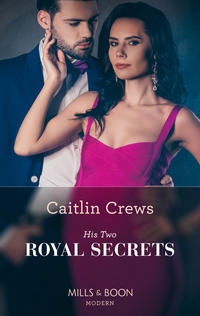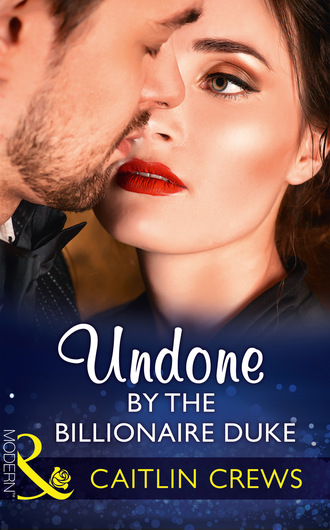
Полная версия
Undone By The Billionaire Duke
Hugo was used to women making similar announcements. You’re terrible, they’d coo, lashes batting furiously. I’m keeping my distance from you. This usually led directly to the sort of indiscriminate evenings from which he was now abstaining.
He had the lowering realization that this woman—wrapped up in a hideous puffy coat with her chin jutting forth and a scowl across her face—might actually mean it.
“Your Grace,” he murmured.
“I beg your pardon?”
“You should address me as Your Grace, particularly when you imagine you are taking me to task. It adds that extra little touch of pointed disrespect which I find I cannot live without.”
If Eleanor Andrews was appropriately mortified by the fact she’d addressed a peer of the realm—who happened to also be her new boss—so inappropriately, she gave no sign. If anything she seemed to pull herself up straighter in her vast, quilted shroud, and made no attempt to wipe off that scowl.
“A thousand apologies, Your Grace,” she said crisply, as if she wasn’t in the least bit intimidated by him. It made something in Hugo...shift. “I was expecting a ride from the train station. Not a walk in the chilly countryside.”
“Exercise improves the mind as well as the body, I’m told,” he replied, merrily enough. “I myself was blessed with a high metabolism and a keen intelligence, so I’ve never had to put such things to the test. But we can’t all be so lucky.”
There was enough light that he could tell that there was a remarkable sort of honey in the brown of this woman’s eyes as they glittered furiously at him. He couldn’t imagine why that shocked him, but it did. That there should be anything soft about such a bristling, black-clad, evidently humorless female.
That he should notice it.
“Are you suggesting that I am not as lucky as you?” she asked, with exactly the sort of repressed fury Hugo would expect to hear from a woman he’d just obliquely called fat.
“That depends on whether or not you imagine that the storied life of a pampered duke is a matter of luck and circumstance. Rather than fate.”
“Which do you think it is?”
Hugo nearly smiled at that. He couldn’t have said why. It was something to do with the way her eyes gleamed and her surprisingly intriguing mouth was set, flashing more of that annoyance straight at him.
“I appreciate you thinking of my well-being,” she said with what he was forced to concede was admirable calm, all that flashing annoyance notwithstanding. “Your Grace.”
Hugo grinned down at her, hoping she found having to look so far up at him as irritating as he would have.
“I wasn’t aware that the last governess left, though I can’t say I’m surprised. She was a fragile little thing. All anime eyes and protracted spells of weeping in the east wing, or so I’m told. I’m allergic to female tears, you understand. I’ve developed a sixth sense. When a woman cries in my vicinity, I am instantly and automatically transported to the other side of the planet.”
Eleanor only gazed back at him. “I’m not much of a crier.”
Hugo waited.
“Your Grace,” he prodded her again when it was clear she had no intention of saying it. “I wouldn’t insist upon such formality but it does seem to chafe, doesn’t it? How republican of you. And really, Eleanor, you can’t expect to mold a young mind to your will and provide fodder for the therapy bills I’ll be expected to pay out from her trust if you can’t remember the courtesy of a simple form of address. It’s as if you’ve never met a duke before.”
She blinked. “I haven’t.”
“I’m not a particularly good representative. I’m far too scandalous, as mentioned. Perhaps you’ve heard.” He laughed when she did a terrible job of keeping her face blank. “I see you have. No doubt you’re an avid fan of the tabloids and their daily regurgitations of my many sins. I can only hope to be even half as colorful in person.”
“And it’s Miss Andrews.”
It was Hugo’s turn to blink. “Sorry?”
“I would prefer it if you call me Miss Andrews.” She nodded then, a faint inclination of her head, which he supposed was as close to any kind of recognition as he’d get. “Your Grace.”
Something moved in him then, far worse than a mere shift. It felt raw. Dangerous.
Impossible.
“Let me clear something up from the start, Miss Andrews,” he said, while his terrible horse tried to trick him into easing his hold on the reins. “I’m exactly as bad as they say. Worse. I ruin lives with a mere crook of my finger. Yours. The child’s. Random pedestrians minding their own business in the village square. I have so many victims it’s a bit of luck, really, that the country still stands. I’m my own blitzkrieg. If you have a problem with that, Mrs. Redding will be happy to replace you. You need only say the word.”
If that affected this maddening woman in any way, she hid it behind her mountainous coat and that equally dour gray scarf.
“I told you, I have no intention of being replaced.” He couldn’t say he liked the exaggerated note of patience in her voice then. “Certainly not of my own volition. Whether you wish to replace me or not is, of course, entirely up to you.”
“I might.” He arched a brow. “I do detest poachers.”
She eyed him as if he was her charge, not his ward. His ward. He hated even thinking those words. He hated even more the fact that Isobel had done exactly what she’d spitefully promised she’d do, time and again: kept her hooks in him even from beyond the grave.
“You should do as you please, Your Grace, and something tells me you will—”
“It is my gift. My expression of my best self.”
“—but I might suggest you see how I handle the child before you send me packing.”
The child. His ward.
Hugo hated that he was required to think about anyone’s welfare at all when he cared so little for his own. He had extensive staff in place, paid handsomely to think about the health and happiness of all his many tenants and other staff members and various employees, leaving him free to lounge about being as useless as he liked.
Which—he’d read in the papers and heard from a chorus of people who would know, like his own dearly departed father—was all he was good for.
The girl, however, was a different sort of responsibility than real estate in Central London or a selection of islands in the Pacific or a coffee plantation in Africa or whatever else was in his holdings.
To say Hugo bitterly resented this was putting it mildly.
“What an excellent idea,” he murmured. “I’ll see she’s waiting for you in the great hall when you finally make it to the house. It shouldn’t be long. Five minutes’ walk if you keep a good pace.”
“You must be joking.”
“Fair enough. Ten minutes’ walk if your legs are shorter than mine, I suppose. I’m afraid I can’t tell, as you appear to be wearing enough goosedown to leave the entire goose population of the United Kingdom shivering and bare. Assuming that’s what’s making you so...” He nodded at her voluminous black tent. “Puffy.”
“Your hospitality is truly inspiring, Your Grace,” she said after a moment, and the fact she managed to keep her face and voice smooth...poked at him.
He didn’t like it.
Just as he really, really didn’t like the fact that he couldn’t remember the last time anyone or anything had managed to get beneath his skin.
“That is, as ever, my only goal,” he replied.
And then, because he could—because he’d dedicated himself to being every bit as awful as he was expected to be, if not worse—Hugo spun the horse around, galloped off, and left the problematic Miss Eleanor Andrews there to find her own damned way to his house.
And his ward.
And this life of his that he’d never wanted, but had inherited anyway. Some would claim he’d earned it. That he deserved it and more.
That it really was fate, not luck, after all.
Hugo knew it didn’t matter. He was trapped in it all the same.
CHAPTER TWO
FIFTEEN MINUTES LATER, Eleanor trudged up to the front of the house at last.
The front door itself rose forbiddingly up over a circular area directly in front of it that was paved with smooth stones and accented by the remnants of a garden turning brown as winter approached.
It seemed like an omen. Though Eleanor did not permit herself to believe in such things, of course.
The closer she’d got to the house, the more she’d wondered exactly why she’d agreed to any of this in the first place. Was it truly necessary that she isolate herself in this creepy old manor house? Was all that lovely money really worth marooning herself in Yorkshire with a man she’d never imagined she’d meet face to face—and didn’t want to meet again, thank you?
And why couldn’t Vivi do something for herself for a change?
But such thoughts made her feel disloyal. A little bit sick to her stomach. It felt like an act of betrayal when Vivi had come so close to losing her own life in that terrible accident. And had fought so hard to stay here. And walk again. Eleanor had been the only one left unscathed.
Sometimes she felt the guilt of that as if it was her own scar, slashed bright and hot across her whole body.
“Stop feeling sorry for yourself,” she told herself briskly, pulling herself together as best she could. “You already took the position.”
She rang the great and imposing bell that hung beside the door before she could think better of it, tugging on the slick old pull once. Then again.
It sounded long and low and deep, like some throwback to medieval times. She half expected knights in shining armor to come cantering up, wittering on about old King Arthur and ladies in lakes.
She was coming over all fanciful. That was what that man had done to her with his smirk and his amusement and his mouth when he was nothing but the same unsavory character she’d read about in the papers all these years. Only worse.
The fact that he was infinitely better-looking than any picture she’d ever seen of him didn’t help. Worse, he was not nearly as fatuous as she’d imagined and he’d been entirely too sardonic besides. Her knees hadn’t felt right since.
But as the door swung inward, she found herself staring not at a disgraceful duke in all his questionable glory, but down into the bright blue eyes and suspicious face of a little girl.
A little girl with silky red-gold hair plaited on either side of her head and a brace of adorable freckles across her nose. A little girl who made Eleanor’s breath catch, because it was impossible to look at her and not see her very famous, very dead mother. Isobel Vanderhaven of the sunny smile and titian hair, who’d looked like everybody’s best friend and the girl next door—if, that was, you happened to live next to one of her parents’ rolling vineyards in South Africa.
“I don’t need a governess,” the child announced at once. In a tone that could only be called challenging.
“Of course you don’t,” Eleanor agreed, and the girl blinked. “Who needs a governess? But you are lucky enough to have one anyway.”
The little girl considered her for a moment, as the October wind blustered and moaned, rushing in from the moors smelling of rain and winter.
“I’m Geraldine.” Her lower lip protruded just slightly, and made her look her age, suddenly. “But you probably know that. They always know that.”
“Of course I know your name,” Eleanor said briskly. “I couldn’t very well take a job if I didn’t know the name of my charge, could I?”
It was clear to Eleanor that this child would keep her standing on the doorstep until the end of time if she didn’t do something about it herself. So she pushed open the door with her free hand, and brushed straight past Geraldine, who watched her with a mixture of surprise and interest.
“They usually just stand in the drive, texting and whingeing,” she piped up.
“Who is ‘they’?” Eleanor reached past Geraldine once she’d stepped inside and shut the door, firmly, which took some doing because it outweighed her by approximately seven tons. And when she turned around to face the hall that had been waiting there behind her, she was glad the little girl didn’t appear to be paying strict attention to her.
Because she was standing in a bloody castle.
Or close enough, anyway. Groves House had looked so grim and brooding from the outside, but here in the spacious foyer, it gleamed. Eleanor couldn’t tell how it was doing that, precisely. Was there gold in the walls themselves? Was it the way the chandeliers hit all the paintings and the elegant furnishings and the rest of the things that seemed to clutter up rich people’s foyers, that she’d only ever seen before on episodes of Downton Abbey?
“Everyone knows my name,” Geraldine was saying with all the self-possession of the very young. “Sometimes they yell it at me in the village. You’re the fifteenth governess so far, did you know that?”
“I did not.”
“Mrs. Redding says I’m disobedient.”
“What do you think?” Eleanor asked. “Are you?”
Geraldine looked a bit thrown by the question. “Maybe.”
“Then you can stop, if you like.” Eleanor eyed the mutinous little face before her and didn’t see any disobedience. She saw a lonely little girl who’d lost her parents and had been sent off to live with a stranger. Eleanor could certainly relate. She ducked her chin so her face was closer to Geraldine’s and whispered the thing that no one had ever bothered to say to her when she’d been heartsick and orphaned, waiting to find out if Vivi would make it through her latest surgery. “It won’t matter either way, you know. Whether you’re good or bad. I can already tell we’ll be great friends and that means we always will. Friends don’t change their minds about each other when things get tough, after all.”
All Geraldine did was blink. Once, then again. But that was enough. Eleanor started unzipping her big coat.
“She’s not any more disobedient than any other small human creature,” came a male voice Eleanor wished she didn’t recognize, wafting down the length of the hall as if it, too, was made of gold. And was set to shine. “She’s seven. Let’s not put the child in a cage so quickly, shall we?”
It took her a moment to find Hugo in all the dizzy brilliance of the bright foyer. But then there he was, sauntering out of one of the connected rooms toward the front door as if he hadn’t a care in the world.
Because of course, he didn’t.
He looked nothing like a duke should, Eleanor thought darkly. No Hooray Henry red trousers or Barbour slung just so for the most hated man in all of England. Not for Hugo. He came towards her in an old, battered pair of jeans. He had his hands thrust into the pockets like some kind of slumming American celebrity. He wore a T-shirt, cleverly ripped here and there, like those Eleanor had seen in the posh shops that Vivi preferred. It was the sort of T-shirt that would’ve looked like a soiled tissue on a lesser man. But Hugo hadn’t been lying about his metabolism. Or anyway, that was how Eleanor tried to view the magnificent specimen of male beauty walking toward her then: in terms of his metabolism.
Because everything on Hugo Grovesmoor’s body was cut to perfection as if he was another piece of statuary in his own hall. His chest was ridiculous, broad at the top and narrow near his hips and stunningly ridged in between. He looked as if he should be racing about in a loincloth, banging on about Sparta. Instead, his dark eyes were the precise shade of a lazy glass of whiskey, his dark hair looked very much as if he’d been galloping around in a bedchamber instead of on horseback, and that little curl in the corner of his mouth was nothing short of disastrous.
Because Eleanor could feel it everywhere. Lighting her up in places she’d long since forgotten about.
She didn’t know what that dark, edgy thing was that wound around inside of her then. What she did know was that it was Hugo’s fault.
“The child is already in a cage,” Eleanor retorted before she could think better of it. She flicked a glance around the vast hall, which was even bigger and more magnificent at a second glance, and just as dizzying, from the plump chandeliers to the acrobatic sconces on the walls. “A large one, I grant you.”
Hugo kept moving toward her, eventually coming to a stop a few feet away. And then they were all three standing there in various degrees of awkwardness, right in front of the big front door.
It was worse when he was close, Eleanor was forced to admit. It made her feel raw and unsteady inside. It had been bad enough when he was up on the back of that giant horse, hooves flailing every which way and that mocking voice of his like a weapon, but Hugo even closer was confusing. Eleanor eyed him balefully, as if that might do something about that bright nonsense sloshing around inside of her and making her feel...things.
Way too many things.
In entirely too many places.
She told herself that it was only that she still had her big, heavy coat on. The coat was the reason she was flushed. Too warm. Almost itchy, somehow. It had nothing at all to do with him.
Next to her, Hugo did nothing to change the impression she’d had of him from across the hall. Or up on that horse, for that matter. And once the shock of his astonishing male beauty wore off—or, if she was more precise, dimmed a slight bit when she managed to breathe—she found that what really exuded from him like his own, very rich and unmistakable scent was all that arrogance.
That smile of his only deepened then. It was as if he could read her mind.
But he directed his attention to Geraldine. “Well?”
The little girl only shrugged, a sullen look on her cute little face.
“No point letting this one settle in like the others, if you’re only going to complain about it later.” Hugo’s voice was...different, Eleanor thought. Not exactly softer, but more careful.
She was so busy trying to figure out what the difference was that she almost missed what he’d said.
“I beg your pardon. Are we discussing my employment?”
Hugo slid that gaze of his back to her. Too lazy. Too hot. She could feel it in too many places. More than before, and hotter.
“We are.” He raised a dark brow. “It appears you’re doing nothing but eavesdropping.”
Eleanor’s teeth hurt, and she unclenched them. “It would be eavesdropping if I was hid behind one of the flower arrangements, blending into all this feverish decor.” She forced herself to smile, and the fact that it was difficult made her uneasy. More than uneasy, but she did it anyway. “I am not eavesdropping. But you are being remarkably inappropriate.”
“It’s a bit of bad form to hurl accusations like that at an innocent child, don’t you think?” Hugo asked lazily, and Eleanor had the strangest thought that he was teasing her.
But why would the Duke of Grovesmoor tease anyone, much less someone as insignificant as Eleanor, a governess he apparently no longer wished to hire? She thrust that aside and concentrated on the only part of this bizarre interaction that she could control. Or try to control, anyway.
“I think all three of us are perfectly aware who I’m speaking to.” Eleanor gazed down at Geraldine then, and this time her smile was genuine. “It won’t hurt my feelings if you’d like me to leave, Geraldine. And I don’t mind it if you say so to my face. But the Duke is very deliberately putting you in a position where you can act out his bad impulses, and that isn’t fair.”
“Life isn’t fair,” Hugo murmured, a bit too dark and smooth for Eleanor’s peace of mind.
Eleanor ignored that, wishing it was as easy to ignore him. “It’s also perfectly okay not to know,” she told the little girl. “We met all of five minutes ago. If you’d like to take a little bit longer to make up your mind, that’s fine.”
“You say that with such authority,” Hugo said. “Almost as if we stand in your house instead of mine.”
Then he looked around as if he’d never laid eyes on the hall before in his life, when Eleanor knew full well that he’d been born here. Apparently, the Duke liked a bit of theater. She filed that away.
“But no,” he continued, as if anyone had argued with him. “It’s the same hall I remember from the whole of my benighted childhood, when governesses far stricter than you failed entirely to make me into a decent man. Portraits of my dreary ancestors lining the walls. Pedigrees as far as the eye can see. Grovesmoors in every direction and back again. Which would suggest that the authority lies with me and not you, would it not?”
“Funny,” Eleanor said coolly, keeping her gaze fixed to his as if she wasn’t the least bit intimidated. Because she certainly shouldn’t have been, and why should it matter to her that his gaze felt as intoxicating as it looked? “The agency is under the impression that in this situation, Geraldine has the authority.”
“Do you think so?” Hugo asked with a dangerous sort of laziness in his voice, then.
She didn’t know what he might have said then. Something like temper stormed about in that gaze of his, making her breath feel heavy and tight in her chest.
But she knew, somehow, that it wasn’t temper. Not quite.
“I like her,” Geraldine chimed in then. “I want her to stay.”
The Duke didn’t shift his eyes from Eleanor’s.
“Your wish is my command, my favorite ward,” he said in that same careful tone, and maybe Eleanor was the only one who could hear all those undercurrents. Or feel them, anyway. Swishing around inside of her as if she’d had entirely too much to drink.
As if he was a new brand of spirit served in far more than the usual measures.
Everything felt hot. Entirely too sharp, as if there were some unseen hand clenched around them, gripping them tight. This close, Eleanor was sure that she could feel the heat of the Duke’s body, making that T-shirt of his seem sensible. Making her feel that much warmer and uncomfortable in her own skin.
It’s only the coat, she told herself desperately, but he was still so close. And much too tall. He towered over her the same way he had on that damned horse, and she assured herself there was no particular reason she should have the image of its flailing hooves, rearing up over her, when it was only a man standing in front of her in an entryway. Just a man. No dangerous animal in sight.
She was sure he almost said something, but he didn’t. Instead, he shifted. He pulled one hand out of his jeans pocket, and lifted it. That was all. If she’d seen a stranger do it on the street, she wouldn’t have thought of it as any kind of gesture. It seemed accidental.
But it wasn’t, she realized the next moment, because suddenly the hall was filled with people.
Geraldine was swept away in the care of two clucking nannies. Someone took Eleanor’s bags, another person took her coat, and then suddenly there was a very neatly dressed, efficient-looking older woman bearing down on her with a tight smile on her mouth and her steel gray hair tucked back in a bun that looked a great deal like Eleanor’s own.
“Mrs. Redding, I presume,” Eleanor said as the woman drew close.
“Miss Andrews.” The woman greeted her in the same briskly matter-of-fact tone Eleanor recognized from the telephone calls they’d had. “If you’ll come with me.”
As Eleanor followed her deeper into the depths of the great house, she realized that the Duke was nowhere to be seen. Then he’d disappeared in all the commotion.
She told herself she was relieved.
“I do apologize that there was no one waiting to collect you from the station,” the housekeeper said as she strode through the maze of halls, not pausing for an instant to give Eleanor a glimpse of the splendor closing in on all sides. Eleanor found she was grateful. She was afraid that if she stopped or stared for too long at any one thing, in any of the many beautiful rooms they hurried past, she’d be mesmerized for days. “It was an oversight.”
Eleanor doubted that, for some reason. Or she doubted that this woman made any oversights, perhaps. But this was her first day, and she had the distinct impression she’d already irritated her employer, so there was no reason to dig that ditch any deeper.


